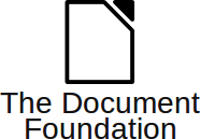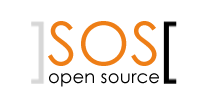The Unsaid Document Foundation (talkbacks)
Michael Meeks, famous hacker and LibreOffice advocate, replied to my earlier post giving his perspectives on many different subjects related to LibreOffice development.
Having read his views with great attention – and keeping in mind his long coding experience with OpenOffice.org, as well as his ability to dig deep into complex subjects like copyright assignment – I want to take a chance to go deeper into some points.




Upstream compatibility is no issue when you are the font.